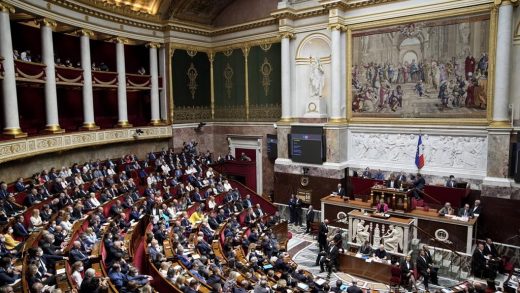
Mark Taylor/Stuff
Christina Kewa-Swarbrick is on trial at Hamilton District Court on immigration charges relating to a group of workers brought over from Papua New Guinea.
A woman accused of exploiting Papua New Guinea workers says she took them to her “mansion” and “treated them like kings and queens”.
“They twisted the story. They have shot me down, exploited me, and left me broken,” Christina Kewa-Swarbrick told an investigator in an interview played in her Hamilton trial.
But she owed the group about $18,000, according to calculations by Immigration NZ.
The 16 people Christina Kewa-Swarbrick and her husband Antony Swarbrick brought to New Zealand thought they’d be doing seasonal work to send money home, a jury has heard.
Alex Gorbi/Unsplash
The group of 16 worked on a Hawke’s Bay vineyard and a Cambridge nursery (file photo).
They didn’t start for a month, and Kewa-Swarbrick said she “took them back to my 10 bedroom mansion and we treated them like kings and queens and they turn around and say I exploited them.”
Workers have previously given evidence that they were bored waiting for work – and when it started one person got $135 for a week’s efforts at a Hawke’s Bay vineyard.
Another “from the village” said he hadn’t fully understood the visa forms given to him.
The group was owed about $18,000 based on minimum wage and the hours worked at a nursery in Cambridge and vineyard in Hawke’s Bay, a senior immigration investigator told Kewa-Swarbrick in a 2017 interview.
But she told Warren Smith they owed her money for looking after them and “I want to be recompensated”.
Kewa-Swarbrick said she’d explained everything and the workers came for “training” and to “record their learnings” about life in New Zealand.
“They misled themselves,” she told Smith.
Mark Taylor/Stuff
Antony Swarbrick told an immigration investigator he was sponsoring the group’s visas, and is also on trial in Hamilton District Court.
Waikato couple Kewa-Swarbrick and Swarbrick have pleaded not guilty to 99 immigration-related charges, including helping people breach visa conditions.
Martha Fretton, whose company contracted workers out to the vineyard, has pleaded not guilty to 12 charges of aiding people to breach their visa conditions.
Kewa-Swarbrick didn’t register as Recognised Seasonal Employer because “it’s not relevant for my vision,” she told Smith in the recorded interview.
Plans changed, and the workers came on visitor visas as part of Kewa-Swarbrick’s Global 4040 programme – but they still thought they were coming to work.
Global 4040 was registered after the 16 Papua New Guinea nationals arrived in New Zealand and soon shut down by immigration so “I have not conducted any activities”, she said.
Mark Taylor/Stuff
Martha Fretton, who had a labour contracting company, has pleaded not guilty to 12 charges of aiding people to breach their visa conditions.
The workers paid about NZ$1000 each – thinking it was for travel and accommodation – but Kewa-Swarbrick said it was for her services and she’d charged less than her usual $70-an-hour rate.
Payslips issued to them were just pretend, she said, and based on hours of training – but Smith argued it was work.
On Thursday, Gary Parsons, who was an Immigration New Zealand senior investigator at the time, said he’d visited the migrants at their Hawke’s Bay accommodation.
“We spoke to them as a group and explained why we were there and what we would like to do.”
“They said at the time they didn’t have enough food,” Parsons said.
After taking the workers’ statements, Parsons travelled to Hamilton to the Swarbricks’ house in Tamahere.
Antony Swarbrick told him the people from Papua New Guinea were on visitor visas, and he was their sponsor.
He said they were “training” at the Hawke’s Bay vineyard, to learn about the industry. He said Martha Fretton was organising it, and they were not being paid wages – just an allowance.
The people were also doing tourist activies, went to Destiny Church events, and spent time around the home, Swarbrick told Parsons.
The trial continues in Hamilton District Court before Judge Robert Spear.


